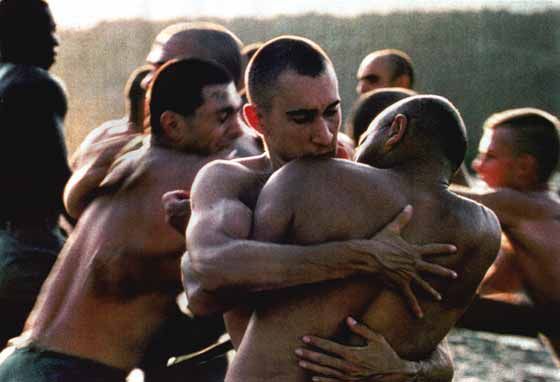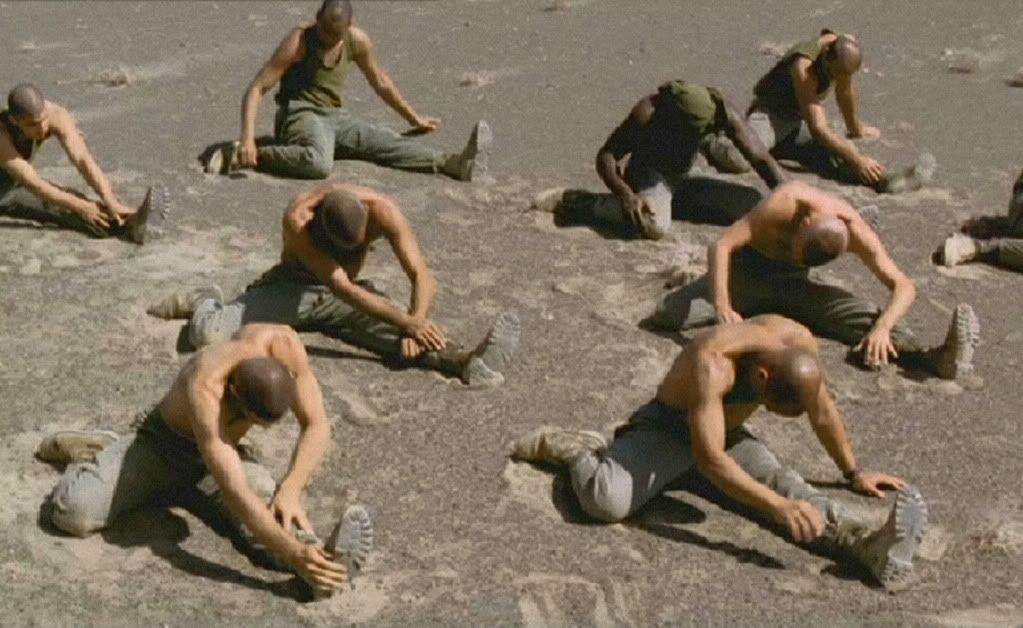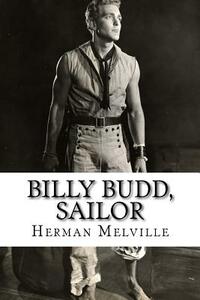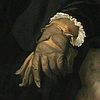Take a photo of a barcode or cover
I wonder what this might have been like had it been finished. The story proper already wrapped up, while those last three chapters send things right past modernism into something closer to postmodernism, including a meta-commentary of propaganda press selling the "official" account of the story. And even in an incomplete state, this brief novella contains all the vastness of late Melville compressed to diamond density. I can't help but laugh at the guy who dismisses this as an "obvious" Christ metaphor which suggests a complete lack of familiarity with pretty much anything Melville ever wrote and also makes the tedious miscalculation so often applied to Melville that his books are just plays of symbolism. (That no one can ever really agree on what said books are meant to symbolize is maybe a clue that his work cannot so easily be reduced and deserves to be seen on its own terms as a collision of intersecting and insoluble ideas and characteristics.)
I had hoped that during the time that has lapsed between having had to read this and [b:Moby-Dick or, The Whale|153747|Moby-Dick or, The Whale|Herman Melville|http://photo.goodreads.com/books/1284311527s/153747.jpg|2409320] as an undergraduate and now I would have warmed up a bit more to Melville, who along with Dickens holds the dubious distinction as being my least favorite "canonical" authors.
No dice. I found this just as difficult to read and even more difficult to sustain any kind of interest in, and was most grateful for the relative brevity of Billy Budd, especially as Melville's writing style can charitably be described as impenetrable, if not at times actually unreadable.
The thing is, I really, really WANT to like Melville. I love reading interpretations of Melville's writing, as they are of the type that fracture and fragment under postmodern analysis, bursting with utterly fascinating queer resonances. Certainly the all-but-slavering characterization of the titular character throughout the novella is one of the glories of homoerotic 19th century literature:
"He was young; and despite his all but fully developed frame, in aspect looked even younger than he really was, owing to a lingering adolescent expression in the as yet smooth face all but feminine in purity of natural complexion but where, thanks to his seagoing, the lily was quite suppressed and the rose had some ado visibly to flush through the tan."
Of course, Billy's corporeal beauty is rather problematically utilized by Melville as a symbol for purity, innocence, and moral as much as physical beauty, something that ultimately creates a rather blank and even unsympathetic cipher of a character. Not that, Claggart, his shadowy nemesis, is accorded any particularly interiority either that would help rationalize the hatred he develops that will eventually destroy Billy…
But Melville's silence in regards to the character of Claggart is also one of the most evocative qualities of the novella, creating an opening that has often been interpreted as sexual in nature: that Claggart is motivated by an attraction that is almost inevitably one-sided, that his fateful claim against Billy is rooted in a self-hatred caused by this attraction, etc.
One way or the other, what interests me about Billy Budd is that Melville's elusively was appropriated by director Claire Denis for her lyrical and (very) loose adaptation Beau Travail (France, 1999). In Denis's capable hands the bare bones of Melville's story is transformed into a beautiful meditation on postcolonialism, homoeroticism, the human (specifically male) body, marginality, movement, race relations, etc, etc, etc that in its own way is just as elusive and endlessly evocative as Melville's text. Only rendered, if you excuse my (very) biased opinion, with a masterfulness and density that Melville's text barely hints at.



No dice. I found this just as difficult to read and even more difficult to sustain any kind of interest in, and was most grateful for the relative brevity of Billy Budd, especially as Melville's writing style can charitably be described as impenetrable, if not at times actually unreadable.
The thing is, I really, really WANT to like Melville. I love reading interpretations of Melville's writing, as they are of the type that fracture and fragment under postmodern analysis, bursting with utterly fascinating queer resonances. Certainly the all-but-slavering characterization of the titular character throughout the novella is one of the glories of homoerotic 19th century literature:
"He was young; and despite his all but fully developed frame, in aspect looked even younger than he really was, owing to a lingering adolescent expression in the as yet smooth face all but feminine in purity of natural complexion but where, thanks to his seagoing, the lily was quite suppressed and the rose had some ado visibly to flush through the tan."
Of course, Billy's corporeal beauty is rather problematically utilized by Melville as a symbol for purity, innocence, and moral as much as physical beauty, something that ultimately creates a rather blank and even unsympathetic cipher of a character. Not that, Claggart, his shadowy nemesis, is accorded any particularly interiority either that would help rationalize the hatred he develops that will eventually destroy Billy…
But Melville's silence in regards to the character of Claggart is also one of the most evocative qualities of the novella, creating an opening that has often been interpreted as sexual in nature: that Claggart is motivated by an attraction that is almost inevitably one-sided, that his fateful claim against Billy is rooted in a self-hatred caused by this attraction, etc.
One way or the other, what interests me about Billy Budd is that Melville's elusively was appropriated by director Claire Denis for her lyrical and (very) loose adaptation Beau Travail (France, 1999). In Denis's capable hands the bare bones of Melville's story is transformed into a beautiful meditation on postcolonialism, homoeroticism, the human (specifically male) body, marginality, movement, race relations, etc, etc, etc that in its own way is just as elusive and endlessly evocative as Melville's text. Only rendered, if you excuse my (very) biased opinion, with a masterfulness and density that Melville's text barely hints at.



Poniamo il bene e il male, entrambi come cose a priori senza un perché: Billy, il bene, è il Bel Marinaio, un esempio morale, motivo di ammirazione, portatore di pace; Claggart, il male, è il maestro d'armi, un uomo viscido, l'opposto di Billy, portato a odiarlo senza una spiegazione.
Insomma, la domanda è: basta questo per creare una storia epica? Basta reinterpretare la Bibbia, metterci un'allegoria palese e creare personaggi estremi?
Non lo so. In ogni caso non mi ha appassionato. Lontano anni luce dalla bellezza di Moby Dick.
Insomma, la domanda è: basta questo per creare una storia epica? Basta reinterpretare la Bibbia, metterci un'allegoria palese e creare personaggi estremi?
Non lo so. In ogni caso non mi ha appassionato. Lontano anni luce dalla bellezza di Moby Dick.
Billy Budd is one of Melville's more equivocal and impenetrable moods. My reading of this short novella was a rollercoaster of ambivalence and enjoyment, followed by disappointment with so many symbolic and thematic questions left to ambiguity. This entire story gave me the literary sensation of holding in a sneeze. Don't get me wrong, the basic narrative is solid and Melville's mastery of allusion and character is on full display. This is a quality tale and Melville is a master. But the story feels decidedly unfinished and much like some of Joyce's less pleasing works, content to flash depths and pose many questions that are never explored. I can see this as rich soil for critical examination and analysis but as a hedonistic reader, I will continue to prefer early Melville.
*slaps book* This bad boy can fit so many metaphors and unnecessarily convoluted sentences in it. I'm exhausted. Didn't hate it but definitely didn't like it.
slow-paced
As pointed out by many reviewers, this is a book that makes us question what constitutes good literature -- e.g., plots that can hold our attention? characters that can prompt our sympathy? languages that can take our breath away? complexities that can keep us intellectually engaged? I'm inclined to think that the fact that Billy Budd has been compelling us to ask such questions is a mark of its excellence.
adventurous
sad
tense
slow-paced
Plot or Character Driven:
Character
Strong character development:
Complicated
Loveable characters:
No
Diverse cast of characters:
No
Flaws of characters a main focus:
Yes
I'm surprised at the two douchebag lists that include this book. Worst books of all time? Would prefer a root canal to reading this book? Talk about putting your ignorance on display. I guess if you're too stupid to understand a book, you're bound to hate it. Anyhow, I thought this was a damn fine story, and it made me want to tackle Moby Dick. Maybe next year.






